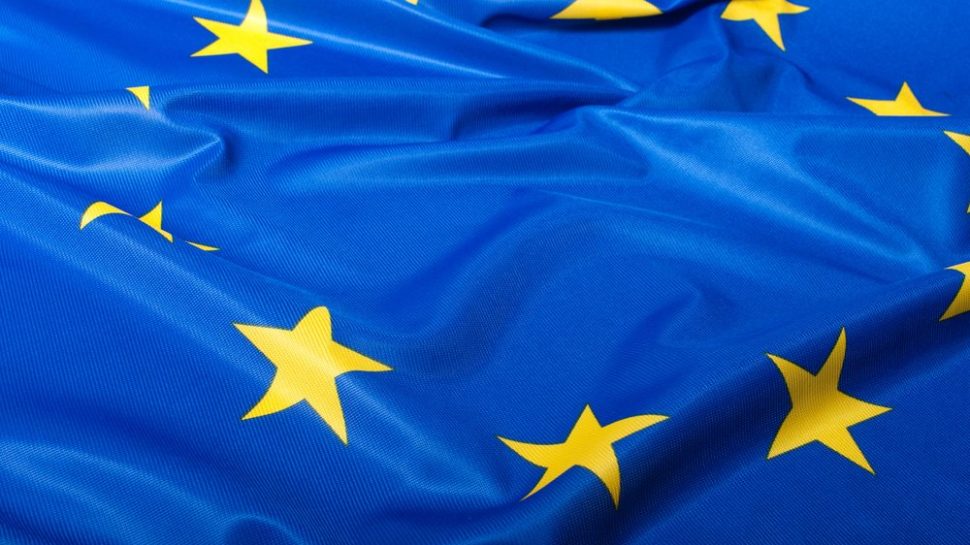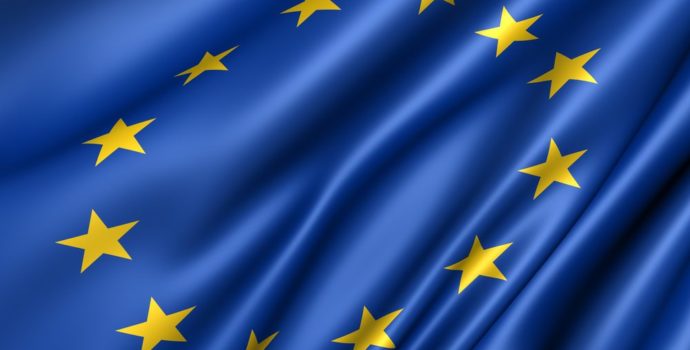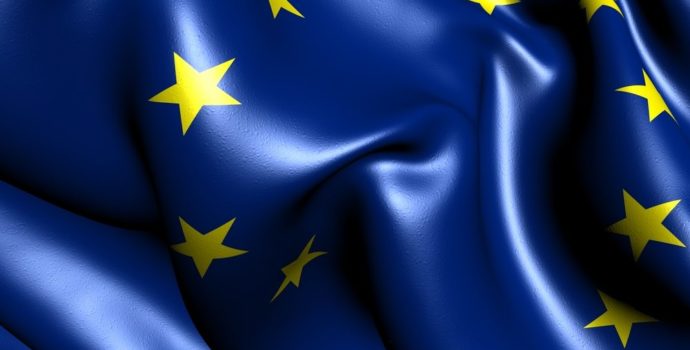European Commission Daily News – 9 April

EU-China Summit takes place in Brussels
This afternoon, the 21stEU-China Summit takes place in Brussels, bringing together the President of the European Commission, Jean-Claude Juncker, the President of the European Council, Donald Tusk, and the Premier of the People’s Republic of China, Li Keqiang. EU High Representative for Foreign Affairs and Security Policy/Vice-President of the European Commission, Federica Mogherini,and Vice-President for Jobs, Growth, Investment and Competitiveness, Jyrki Katainen, will also participate in the Summit. The Summit takes place one month after the Commission and the High Representativeset out 10 concrete actions to respond to the opportunities and challenges presented by the EU-China relationship, and related Conclusions by the European Councilon 22 March. The Summit also follows a number of other strategic engagements on the topic of EU-China relations over the past months, namely the High-Level Strategic Dialogue, the March Foreign Affairs Council, the Human Rights Dialogue, and the participation of President Juncker in a meeting on Global Governance with the leaders of France, China and Germany. At today’s Summit, Leaders will address the most pressing issues in EU-China bilateral relations, such as, on the trade and investment agenda, the negotiations towards a Comprehensive Investment Agreement and an agreement on Geographical Indications. Global challenges and governance, for example cooperation on multilateralism, including through reform of the World Trade Organisation, tackling climate change, and increasing sustainable connectivity, will also be addressed, as will common foreign policy priorities such as the Democratic People’s Republic of Korea, the Iran nuclear deal, and Afghanistan. President Juncker, President Tusk and Premier Li will hold a press conference to conclude the Summit, which will be broadcast live on Europe by Satellite at 16:15 CET. A number of meetings will take place in the margins of the Summit, including the 8th Energy Dialogue with the participation of Climate Action and Energy Commissioner, Miguel Arias Cañete, and Zhang Jianhua, the Administrator of the National Energy Administration of China; the 4th Innovation Cooperation Dialogue, co-chaired by the Commissioner for Research, Science and Innovation, Carlos Moedas, and Chinese Minister for Science and Technology Wang Zhigang; the Connectivity Platform, co-chaired by Transport Commissioner Violeta Bulc and the Chairman of the National Development and Reform Commission, He Lifeng; the 12th High-Level Competition Dialogue and 2nd High-Level Dialogue on State Aid Control and the Fair Competition Review System, co-chaired by Competition Commissioner, Margrethe Vestager, and the Director for the State Market Regulatory Administration, Zhang Mao; and the Regional and Urban Policy Dialogue, co-chaired by the Commissioner for Regional Policy, Corina Crețu, and the Vice-Chairman of the National Development and Reform Commission, Luo Wen. For more information on EU-China relations, visit the website of the EU Delegation in Beijing and view the dedicated factsheet. (For more information: Margaritis Schinas – Tel.: +32 229 60524; Mina Andreeva – Tel.: +32 229 91382; Maja Kocijančič– Tel.: +32 229 86570; Adam Kaznowski – Tel: +32 229 89359)
Brexit preparedness: EU preparations help safeguard citizens’ social security entitlements
As part of its Brexit preparedness and contingency work, the European Commission has taken several measures to protect EU citizens and UK nationals who are or have been living or working in another Member State. While the European Commission remains committed to concluding the Withdrawal Agreement, it is still possible that the United Kingdom will leave the European Union without a deal. As many EU and UK citizens have made their life choices based on rights related to free movement under EU law, a “no-deal” withdrawal can have harsh consequences on their lives. To protect social security rights related to situations before the withdrawal date, the Commission has proposed an EU regulation, which has already been approved by the European Parliament and the Council. In addition to the Regulation, we have worked with EU-27 Member States to ensure a common approach. More concretely, we have recommended that Member States use national, unilateral measures to, amongst other things, continue to export old-age pension to persons residing in the United Kingdom, and to address ongoing medical treatments. The Commission has also published information for citizens on living, working and travelling in the EU and the UK. Marianne Thyssen, Commissioner for Employment, Social Affairs, Skills and Labour Mobility, said: “A “no-deal” is not the outcome we want, but it is a scenario we are preparing for. The millions of EU citizens who worked in the United Kingdom before the withdrawal will not lose these pension rights when retiring in the EU. Patients should be able to finalise ongoing medical treatment in the UK. Not everything will be smooth, but we will try to mitigate the negative impact of a “no-deal” Brexit. I believe that the Withdrawal Agreement remains the best possible outcome for everyone concerned, but the EU will put citizens first, whichever scenario occurs.” A range of factsheets can be consulted online and the text of the Contingency Regulation is available here. A press conference with Commissioner Thyssen, where further details of the EU’s preparedness in the area of employment and social affairs will be presented, can be watched on EbS. (For more information: Christian Wigand – Tel.: +32 229 62253; Sara Soumillion – Tel.: + 32 229 67094)
The Energy Union: from vision to reality
The fourth report on the State of the Energy Union, adopted today, shows that the European Commission has fully delivered on its vision of an Energy Union strategy guaranteeing accessible, affordable, secure, competitive and sustainable energy for all Europeans. Europe is already a global leader in fighting climate change. European policies implemented over the last five years in all policy areas have put the EU on the right track to fully embrace the clean energy transition, seizing the economic opportunities that it offers, creating growth and jobs and a healthier environment for consumers. Vice-President Maroš Šefčovič, in charge of the Energy Union, said: “The Energy Union is Europe at its best: tackling together the big energy security and energy transition we can’t solve within national borders. From the daunting challenge of the energy transition we made an economic opportunity for all Europeans. To do this, we had to truly transform our energy and climate policies: not just tweaks at the margins but systemic change. No Member State could have delivered on its own. Our report shows how all the Energy Union measures combine to make our policy fit for the future.” Commissioner for Climate Action and Energy Miguel Arias Cañete said: “Europe has now in place the world’s most ambitious and advanced climate and energy framework. We agreed all the legislation to meet our 2030 targets, with higher targets for renewables and energy efficiency. But the Energy Union is more than rules and policies: we mobilised record levels of clean energy investments in Europe, we brokered the Paris Agreement and triggered its quick entry into force, we further integrated the European energy market, and we set a long-term vision for climate neutral Europe by 2050.” The report is accompanied by two documents showing progress made in renewable energy and energy efficiency. In parallel the Commission is also putting forward a report on the implementation of the strategic action plan on batteries and a communication for more efficient and democratic decision making in EU energy and climate policy. A press release and a Q&A are available online. More information can be found on the Website.(For more information: Anca Paduraru – Tel.: +32 229 91269; Anna-Kaisa Itkonen – Tel.: +32 229 56186; Lynn Rietdorf – Tel.: +32 229 74959)
Commissioner Malmström visits Korea and Japan
Commissioner for Trade Cecilia Malmström is participating today in the 8th Trade Committee between the EU and Republic of Korea. The role of the Committee set up under the trade agreement in place since 2011 is to supervise the overall implementation of the agreement and provide a framework for discussion on any issues that may arise in the EU-Korea trade. Today’s meeting will therefore cover, amongst others, questions related to EU beef exports to Korea, as well as implementation by Korea of the trade and sustainable development provisions of the agreement. Following this meeting, on 10 April 2019, the Commissioner will travel to Japan to Tokyo to co-chair the first meeting of the EU-Japan Joint Committee under the new EU-Japan Economic Partnership Agreement. The Joint Committee is set to adopt decisions on procedures for implementation of the new agreement in place since February this year and kick-start bilateral cooperation to monitor and support its implementation. Sectoral specialised committees and working groups will discuss the ways to ensure an effective implementation of the agreement in the area of product standards, customs procedures, public procurement markets, or trade and sustainable development priorities.For more information see Commissioner Malmström‘s statement today in Korea, as well as dedicated websites on EU-Japan Economic Partnership Agreement and EU-Korea trade agreement. (For more information: Daniel Rosario – Tel.: +32 229 56185; Kinga Malinowska – Tel: +32 229 51383)
Read the European Commission – Daily News in full here




